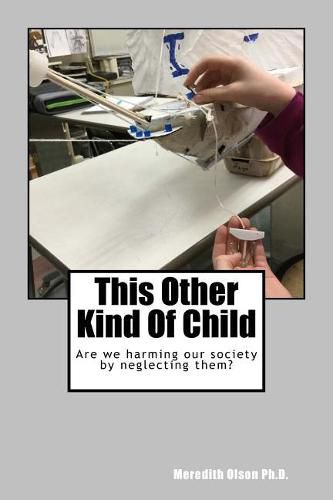Readings Newsletter
Become a Readings Member to make your shopping experience even easier.
Sign in or sign up for free!
You’re not far away from qualifying for FREE standard shipping within Australia
You’ve qualified for FREE standard shipping within Australia
The cart is loading…






Children differ. Some are shy, others outgoing. Some have high verbal ability. Some few, have strong spatial ability. What can we know about spatial ability? Are there different categories of spatial ability? Do certain types of individuals show the ability to analyze one category of spatial thinking more than other categories? Much of our interest in spatial ability stems from our concern over how children understand mathematics and science. Our research identified a kind of child who visualizes 3-dimensions and uses logical reasoning even with nonsense syllogisms. They are rare. To reach their fullest potential, we feel instructional modes must be differentiated for this other kind of child . Acceleration is not enough. Working with this other kind of child is a major part of what is distinctive about the school where I teach. Serving this other kind of child is what we do here. We are not serving a privileged group, we are serving an oppressed group. These students often come to dislike school. Typical school classrooms emotionally assault their sense of self worth on a daily basis. There, students resist doing standard assigned lessons. They get fed up with school, barely comply with lesson requests, and often simply drop out. Our school is a singular hope for them. We have an opportunity. Their high Block Design sub-score on the WISC intelligence test is the best predictor of this unique kind of child who we seek to serve. This underserved kind of child needs us. The need is urgent. These children are worth saving. They are the future of our technological society.
$9.00 standard shipping within Australia
FREE standard shipping within Australia for orders over $100.00
Express & International shipping calculated at checkout
Children differ. Some are shy, others outgoing. Some have high verbal ability. Some few, have strong spatial ability. What can we know about spatial ability? Are there different categories of spatial ability? Do certain types of individuals show the ability to analyze one category of spatial thinking more than other categories? Much of our interest in spatial ability stems from our concern over how children understand mathematics and science. Our research identified a kind of child who visualizes 3-dimensions and uses logical reasoning even with nonsense syllogisms. They are rare. To reach their fullest potential, we feel instructional modes must be differentiated for this other kind of child . Acceleration is not enough. Working with this other kind of child is a major part of what is distinctive about the school where I teach. Serving this other kind of child is what we do here. We are not serving a privileged group, we are serving an oppressed group. These students often come to dislike school. Typical school classrooms emotionally assault their sense of self worth on a daily basis. There, students resist doing standard assigned lessons. They get fed up with school, barely comply with lesson requests, and often simply drop out. Our school is a singular hope for them. We have an opportunity. Their high Block Design sub-score on the WISC intelligence test is the best predictor of this unique kind of child who we seek to serve. This underserved kind of child needs us. The need is urgent. These children are worth saving. They are the future of our technological society.